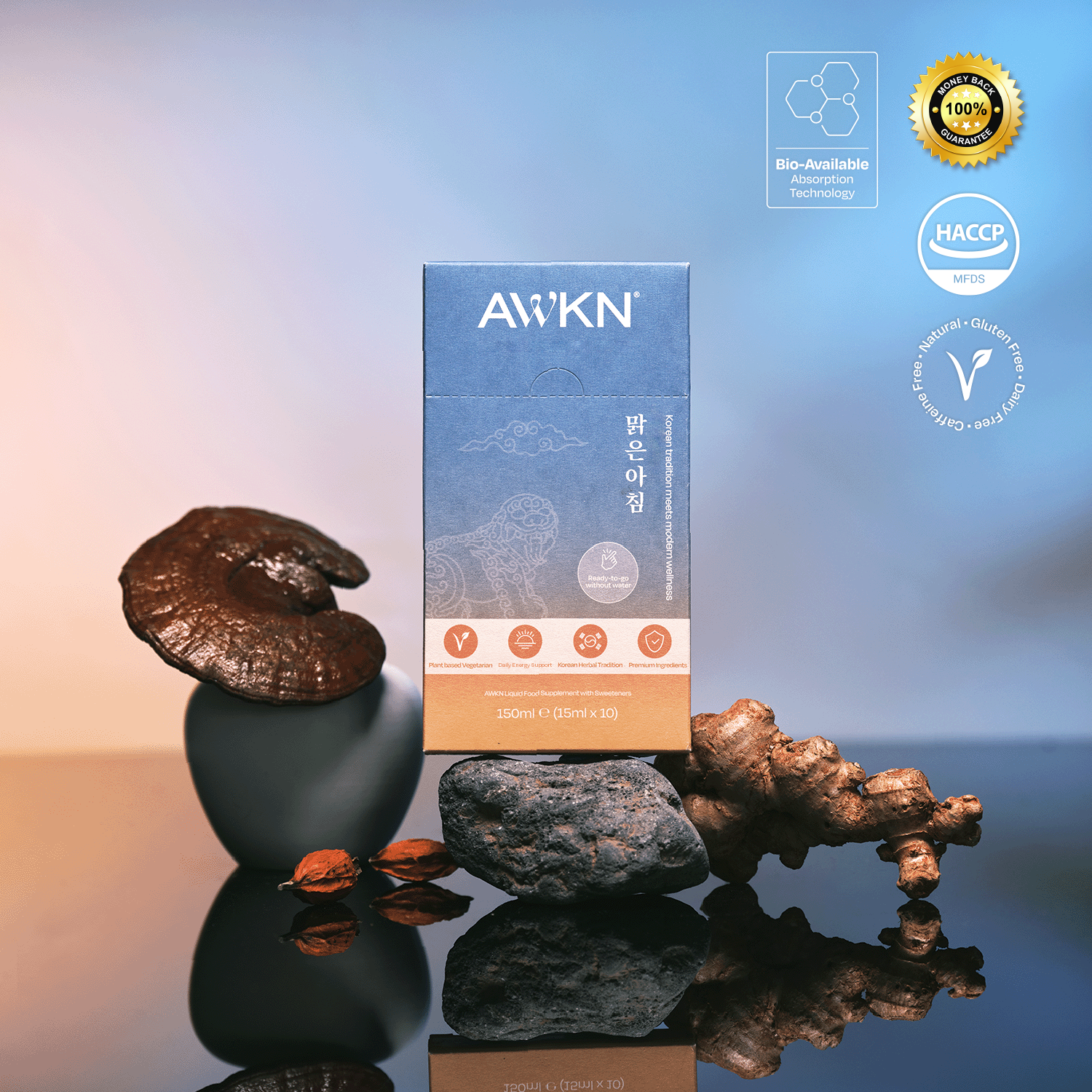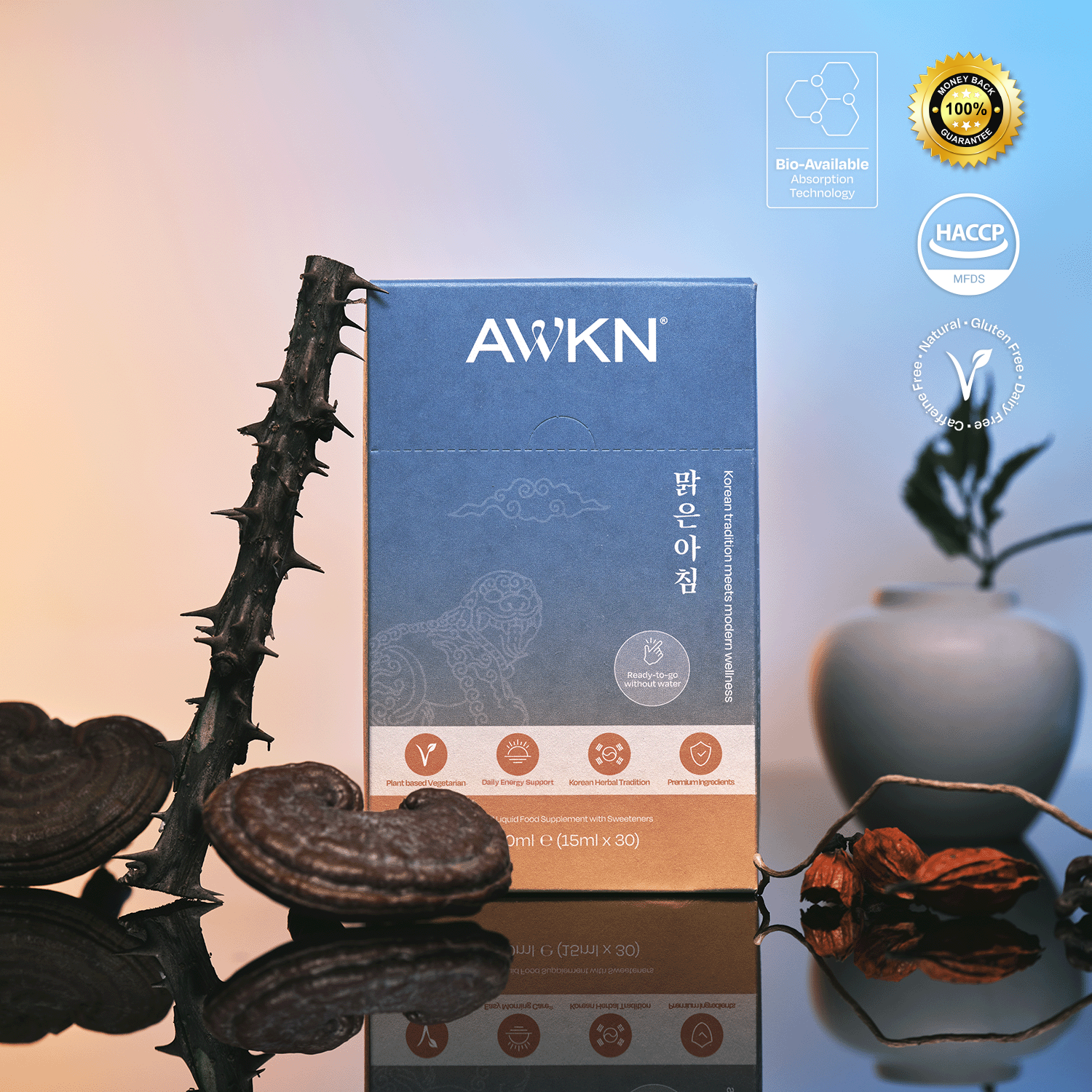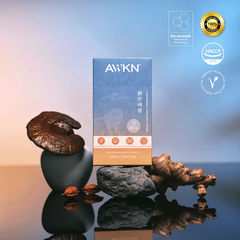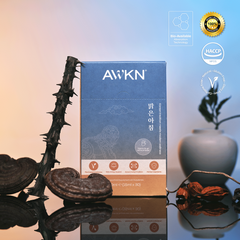Why Alcohol Hits Harder as You Age: The Science Behind Your Changing Tolerance
You're not imagining it. That single glass of wine that once barely registered now leaves you feeling tipsy. The cocktail that was once the beginning of your night is now enough to end it. And those hangovers? They've transformed from mild inconveniences into day-wrecking events.
It's not your imagination—it's biology.
Understanding how your body changes can also help you support it better — and that’s where science-backed hangover prevention supplements can make a difference.
At AWKN, we hear this realization from so many people on their recovery journey: "..since turning 30 every night out no matter how little I drink results in at least a headache and grogginess the next day” This observation isn't just anecdotal—it's backed by science, and understanding the physiological reasons behind this change can be empowering for those questioning their relationship with alcohol.
The Water Content Shift: Less Safety Allowance for Impact
In your 20s, your body had a natural defense system against alcohol's harsh effects—water. Young adult bodies contain a higher percentage of water, approximately 60% compared to 50% in older adults. This matters significantly for how alcohol affects you.
"As we age, the amount of water in our body decreases and the amount of fat increases. Alcohol is distributed in the water in our bodies," explains Dr. George Koob, Director of the National Institute on Alcohol Abuse and Alcoholism. Because there's less water in your system as you age, the same amount of alcohol becomes more concentrated in your bloodstream.
Research published in the journal Alcohol and Alcoholism confirms that older individuals achieve higher blood alcohol concentrations than younger people from the same amount of alcohol consumption. A study by Vestal et al. demonstrated that elderly men reached a 20% higher peak blood alcohol concentration than younger men after consuming identical doses of alcohol.
This means that one drink in your 40s or 50s might affect you similarly to what 1.2 drinks did in your 20s—without changing anything else about your drinking habits.
Your Liver's Midlife Crisis: Slower Processing, Longer Effects
Perhaps the most significant factor in your changing relationship with alcohol is your liver—the organ responsible for metabolizing approximately 90-98% of the alcohol you consume.
As we age, our liver function naturally declines:
-
Liver volume decreases by approximately 20-40% between ages 20 and 80
-
Blood flow to the liver diminishes
-
The quantity and efficiency of alcohol-metabolizing enzymes decrease
A study published in Clinical Pharmacokinetics found that the activity of alcohol dehydrogenase—the primary enzyme that breaks down alcohol—decreases with age. This means alcohol remains in your system longer, extending both its intoxicating effects and the toxic aftereffects.
Research by Meier and Seitz published in Digestive Diseases found that the rate of alcohol elimination can decrease by approximately 10% per decade after age 40. This slower processing means higher blood alcohol levels that persist for longer periods—explaining why that morning-after feeling now stretches into the afternoon or even the next day.
Supporting your liver with targeted nutrients and Korean hangover recovery supplements may help your body process alcohol more efficiently and recover more comfortably.
Brainfog: More Vulnerable Than Ever
That post-drinking mental fog that seems to last longer with each passing year? There's solid science behind that too.
Research published in Alcoholism: Clinical and Experimental Research demonstrates that alcohol's effects on cognitive function become more pronounced with age. The study found that moderate alcohol consumption caused greater impairment in attention, memory, and coordination tasks in older adults compared to younger counterparts.
Dr. Sara Jo Nixon, a professor of psychiatry who studies alcohol's effects on the brain, explains that "aging itself causes changes in brain structure and function that can make older individuals more sensitive to alcohol's effects."
The blood-brain barrier—a protective filter that prevents harmful substances from reaching the brain—becomes more permeable with age. This allows more alcohol and its toxic byproducts to reach brain tissue directly, resulting in greater impairment and longer recovery times.
Additionally, your brain's neuroplasticity—its ability to adapt and recover from insults—decreases with age. This explains why cognitive symptoms like brain fog, memory issues, and concentration problems persist longer after drinking as you get older.
The Sleep Debt: The Most Underrated Culprit
One of alcohol's most underappreciated damages occurs during sleep, and this effect intensifies with age.
While alcohol might help you fall asleep initially, it severely disrupts your sleep architecture—particularly REM sleep, which is essential for cognitive function and emotional well-being. As we age, our sleep quality naturally declines, making us more vulnerable to alcohol's sleep-disrupting effects.
A study in the Journal of Clinical Sleep Medicine found that alcohol consumed even 6 hours before bedtime significantly reduced sleep quality in middle-aged and older adults. The researchers noted that "older adults experience greater sleep fragmentation following alcohol consumption, extending the recovery period needed after drinking."
Dr. Timothy Roehrs, who studies alcohol's effects on sleep at the Henry Ford Hospital Sleep Center, explains: "Alcohol's sedative effects disappear in the middle of the night, causing increased wakefulness in the second half of sleep—exactly when your body should be entering its most restorative sleep phases."
For the aging body already struggling with natural sleep changes, alcohol creates a sleep debt that becomes increasingly difficult to repay.
Inflammation: Adding Fuel to the Fire
One of the most insidious effects of aging is the gradual increase in baseline inflammation throughout the body—a phenomenon scientists call "inflammaging."
Research published in Frontiers in Immunology has demonstrated that alcohol consumption amplifies this age-related inflammation. Alcohol triggers the release of pro-inflammatory cytokines while simultaneously compromising the immune system's regulatory functions.
Dr. Gyongyi Szabo, a leading researcher on alcohol's effects on the immune system, explains that "alcohol activates inflammatory processes in the intestine and the liver, which can then lead to inflammation in other organs."
This amplified inflammation manifests as increased joint pain, digestive distress, skin flushing, and that overall feeling of unwellness that characterizes modern hangovers. The inflammation connection explains why many people report more pronounced physical symptoms from drinking as they age—from facial puffiness and bloating to worsened arthritis symptoms following alcohol consumption.
It's Not Just Physical: The Emotional Impact
Beyond the physical changes, many adults report increased anxiety and depression following drinking episodes as they age—often referred to as "hangxiety."
A study published in Nature Communications found that alcohol-induced changes to the GABA system (a key neurotransmitter involved in anxiety regulation) become more pronounced with age. This helps explain why the post-drinking mood crash feels more severe as you get older.
Research in the journal Neuropharmacology found that even moderate alcohol consumption produced more significant disruptions to mood-regulating neurotransmitters in older versus younger subjects.
"As we age, our brains become more sensitive to alcohol's mood-disrupting effects," explains Dr. Sarah Benson, alcohol researcher at Swinburne University. "What used to be a minor mood fluctuation in your 20s can become a significant emotional challenge in your 40s and beyond."
Liberation Through Understanding
Understanding that these changes are universal and biologically based can be profoundly liberating.
Your changing relationship with alcohol isn't about willpower or "not being fun anymore." It's about a body that's communicating its needs more clearly than ever before.
Many people find that recognizing these biological realities helps them make more aligned choices about alcohol consumption. Whether that means mindful moderation, exploring alcohol alternatives, or embracing alcohol-free living, listening to your body's evolving needs is an act of self-care.
Your body isn't betraying you—it's protecting you by making the consequences of alcohol consumption more immediate and apparent. In many ways, this increased sensitivity is a gift—an early warning system that many of us didn't have in our youth.
The question isn't whether your tolerance has changed—the science is clear that it has. The question is: how will you listen to what your body is telling you?
AWKN Recovery Support Pro Blend is a carefully formulated hangover prevention supplement, developed to support those navigating these physiological changes.. With ingredients targeted to support liver function, reduce inflammation, improve sleep quality, and balance mood, it provides comprehensive support for your body's natural recovery processes.
Learn more about the science behind AWKN® Korean hangover supplements.
Sharing some of our verified reviews that share similar struggles and how they found AWKN to be helpful in addressing some of these symptoms.
“Its legit and works great, since turning 30 every night out no matter how little I drink results in at least a headache and grogginess the next day but not now! What should have been a horrendous hangover today has resulted in smallest mumble of a headache. Will definitely be keeping these in stock going forward”
— Cally M, Verified Reviewer
“I'm not much of a drinker. A couple of evenings a month perhaps and maybe 1 big night a year (usually someone's stag or birthday - you know how it is). Anyway, AWKN is now part of every event. If I have 3 pints, I feel like I've had none. If I have 10 pints, I'm not 100% but it's more like recovering from a tipple. Can't imagine going out without it now tbh. Try it once and you'll wonder why you haven't been having AWKN forever.”
— Joshua H, Verified Reviewer








Leave a comment